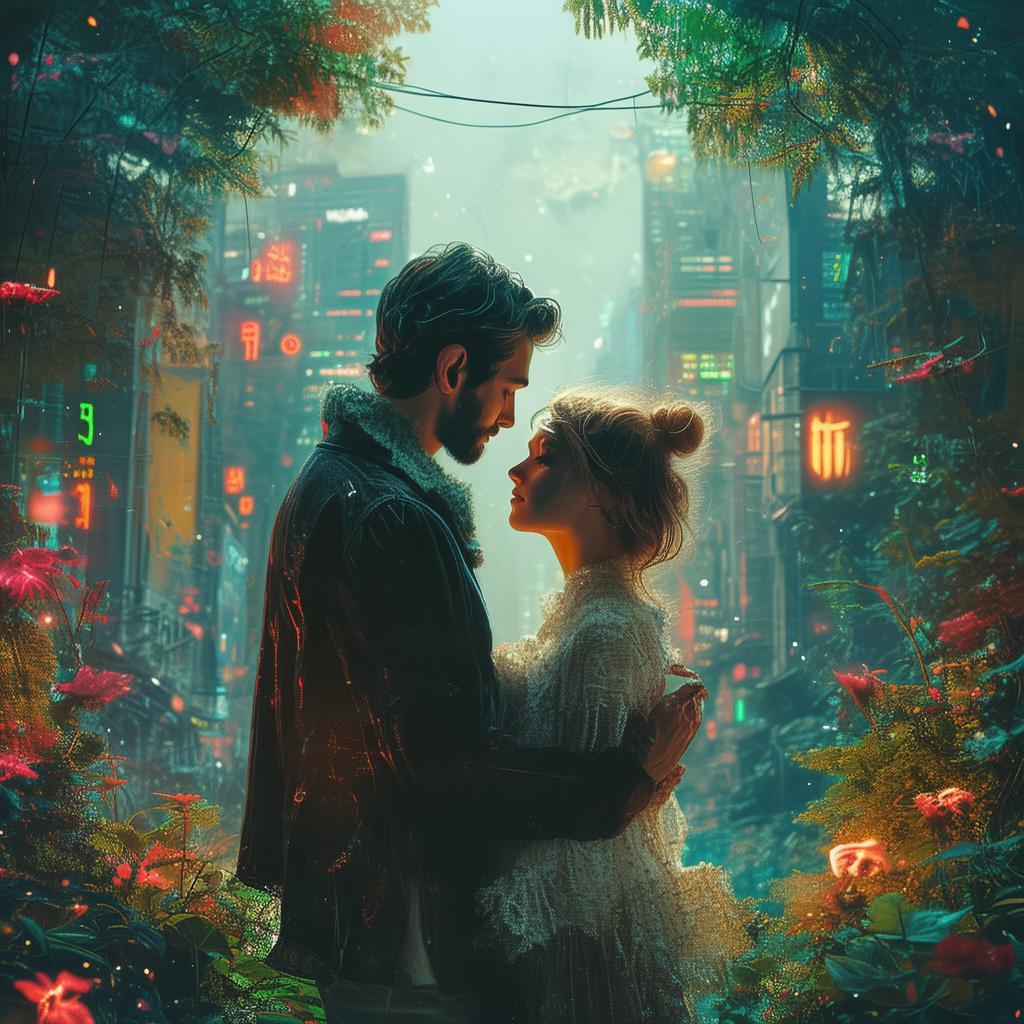The Cart of the Misunderstood: A Love’s Triumph Over Prejudice
In the bustling streets of the quaint village of Windermere, there stood a cart, a simple wooden structure adorned with vibrant flowers. It was not just any cart; it was the cart of the misunderstood, the silent witness to a love that dared to defy the world's most rigid boundaries.
The cart's owner, Elara, was a woman of unparalleled beauty and grace, her eyes reflecting the depth of her soul. She was a cartmaker by trade, her hands skilled in crafting the most exquisite carts. Yet, her heart belonged to a man who was forbidden to her—a man named Lior, the village blacksmith, whose skin was darker than the soil he tilled.
The love between Elara and Lior was as strong as the iron that Lior forged. They spoke in hushed tones, their words woven with the same fervor as the threads in the tapestries they both adored. They met under the moon's watchful eye, their laughter mingling with the rustling of leaves, a sound forbidden by the village elders.
But the elders were harsh and unforgiving, their hearts as cold as the winter winds that swept through the village. They decreed that love between Elara and Lior was an abomination, a sin that must be extinguished. They threatened to burn the cart that symbolized their love, to erase any trace of their forbidden union.
Elara and Lior, however, were undeterred. They knew that love was not a cart, not a symbol, but a living, breathing force that could not be contained. They believed in the triumph of love over prejudice, in the power of hearts to connect despite the world's judgment.
The cart became their sanctuary, a place where they could be together, away from the prying eyes of the village. They painted it with the colors of their love—a blend of red, symbolizing passion, and gold, representing the purity of their bond. The cart became their love story, a testament to the resilience of the human spirit.
As the days turned into weeks, the cart became a beacon of hope for others who felt the same way but dared not voice their feelings. The cart's presence in the village grew, and with it, whispers of change. Some villagers began to question the elders' decree, to wonder if love truly was as dangerous as the elders claimed.
One evening, as the sun dipped below the horizon, casting a golden glow over the village, the elders decided to act. They gathered the villagers and approached the cart with flames in their hearts and pitchforks in their hands. Elara and Lior stood before them, their love as palpable as the air they breathed.
The elders spoke of sin and damnation, of the purity of the village that must be protected. Elara stepped forward, her voice steady despite the fear that gripped her. "We love each other," she declared, "and nothing, not even your words, can take that away from us."
Lior stood beside her, his eyes filled with resolve. "We are not a threat to this village, but a testament to its strength. Love can heal, not harm."

The elders' faces twisted with anger, but the crowd was divided. Some nodded in agreement with the elders, while others whispered their support for Elara and Lior. The tension in the air was palpable, a silent battle between love and prejudice.
Suddenly, the cart began to glow with an ethereal light, its flowers blooming with an intensity that seemed to defy nature. The elders gasped, and the crowd murmured in awe. The cart was not just a symbol of love; it was a beacon of hope.
The elders, seeing the power of the cart's light, realized the futility of their actions. They stepped back, their resolve crumbling under the weight of the cart's light. The villagers, seeing the elders' retreat, began to cheer for Elara and Lior.
The cart became a symbol of the triumph of love over prejudice, a testament to the fact that love is not a force to be feared but a force to be celebrated. Elara and Lior, their love now accepted by the village, rode in their cart, hand in hand, their hearts full of joy.
The cart of the misunderstood had become the cart of the triumphant, a symbol of the power of love to overcome even the deepest prejudices. And so, in the village of Windermere, love found its way, proving that in the end, love's triumph over prejudice is as inevitable as the sunrise.
✨ Original Statement ✨
All articles published on this website (including but not limited to text, images, videos, and other content) are original or authorized for reposting and are protected by relevant laws. Without the explicit written permission of this website, no individual or organization may copy, modify, repost, or use the content for commercial purposes.
If you need to quote or cooperate, please contact this site for authorization. We reserve the right to pursue legal responsibility for any unauthorized use.
Hereby declared.









